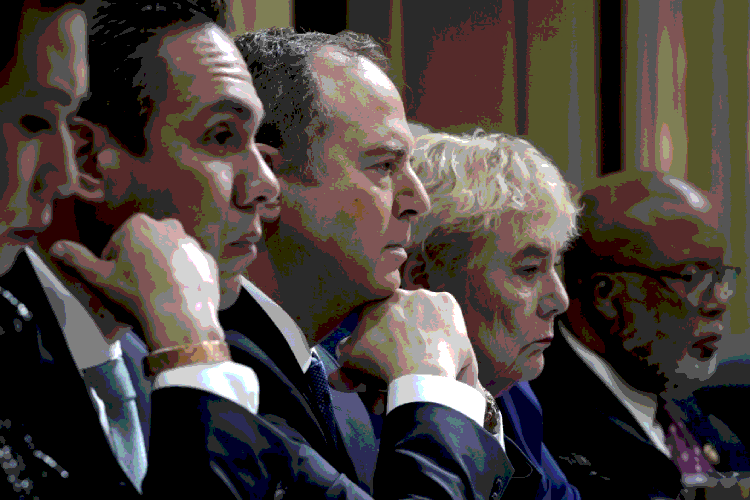
The January 6th Committee, tasked with investigating the events surrounding the Capitol riot on January 6, 2021, has been accused of destroying evidence. Specifically, there are claims that Representative Adam Schiff, among others, may have engaged in the destruction or improper handling of records and communications generated during the committee’s inquiry.
Evidence and Claims:
Deletion of Encrypted Files: Reports suggest that over 100 encrypted files were deleted by the committee right before the changeover to Republican control of the House. This action is seen as an attempt to prevent these documents from being accessed or analyzed by incoming members who might view them with a different political lens.
Transparency Issues: There have been posts on social media and articles suggesting that the committee did not preserve all records as required by law, potentially to hide coordination, bias, or other sensitive information that could undermine the committee’s findings or methods.
Alleged Alteration of Evidence: There are also accusations that some evidence presented by the committee, like witness testimonies or communications, might have been altered or selectively curated to fit a predetermined narrative.
Legal Basis for Accusations:
Federal Records Act: This act requires that all records of government business be preserved. Deleting records, especially those pertinent to significant public inquiries, could be construed as a violation of this act.
Obstruction of Justice: Destroying evidence, particularly in an investigation aimed at uncovering truth about a national security event, could fall under federal obstruction of justice laws (18 U.S.C. § 1505, 1512).
Ethical Considerations: Members of Congress are bound by ethical standards to conduct their duties with integrity. Destroying evidence would be a clear breach of these standards under House rules.
Logical Argument:
Duty to Preserve: The committee had a legal and ethical duty to preserve all evidence and communications. The act of deleting files or not complying with record-keeping obligations undermines the integrity of the investigation and public trust.
Intent and Motive: If the destruction was deliberate, specially timed to coincide with a change in political control, it suggests an intent to obscure the full picture of the investigation from future scrutiny. This could indicate an attempt to manipulate the historical record or protect certain individuals or narratives.
Impact on Justice: Such actions hinder the ability of any subsequent investigations or legal proceedings to access all relevant information, potentially affecting justice for those involved in the January 6th events or altering the public’s understanding of those events.
Appropriate Action if Found Guilty:
Criminal Prosecution: If deliberate destruction of evidence is proven, legal action under federal obstruction laws should be considered. This could involve charges of obstruction of justice or other related crimes.
Ethical Sanctions: The House Ethics Committee should investigate for violations of congressional ethics. Sanctions could range from censure to expulsion from Congress, depending on the severity of the breach.
Restitution or Corrective Measures: If possible, attempts should be made to recover or reconstruct the lost data. If not, a public acknowledgment of the evidence destruction and its implications should be made.
Reform of Committee Procedures: To prevent future occurrences, new protocols for evidence preservation, transparency, and accountability should be established for all congressional committees, especially those with investigative powers.
Public Accountability: An independent review or commission should be set up to assess the damage done by the lost evidence and to restore public confidence in the legislative process.
In conclusion, if Adam Schiff and others on the January 6th Committee are found guilty of destroying evidence, these actions represent a significant breach of public trust and legal obligations. The response should be thorough, ensuring that justice is served, and measures are taken to safeguard against such incidents in the future.
